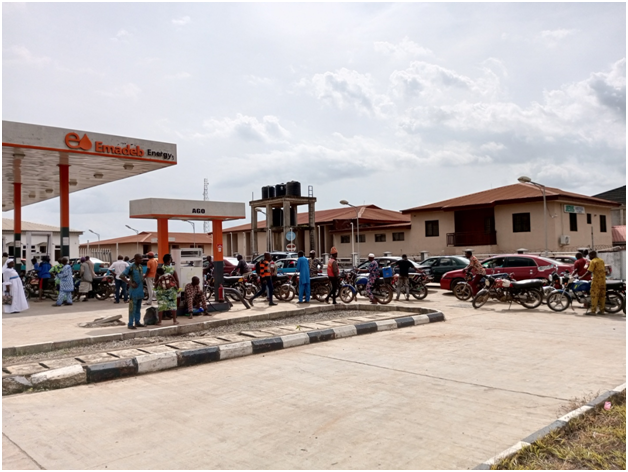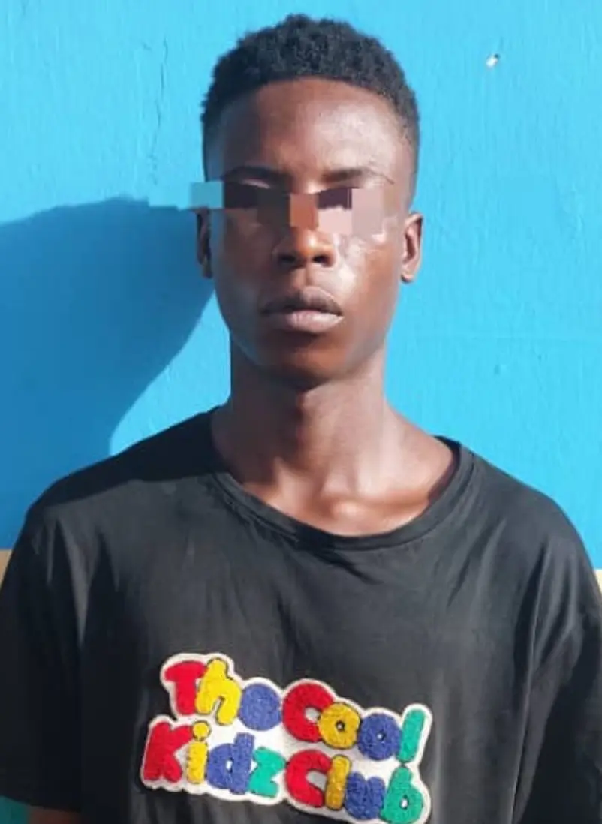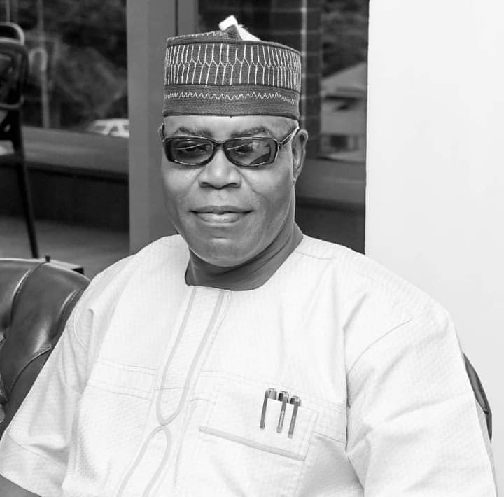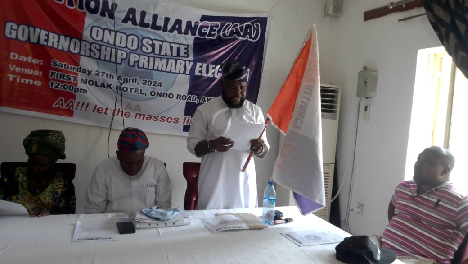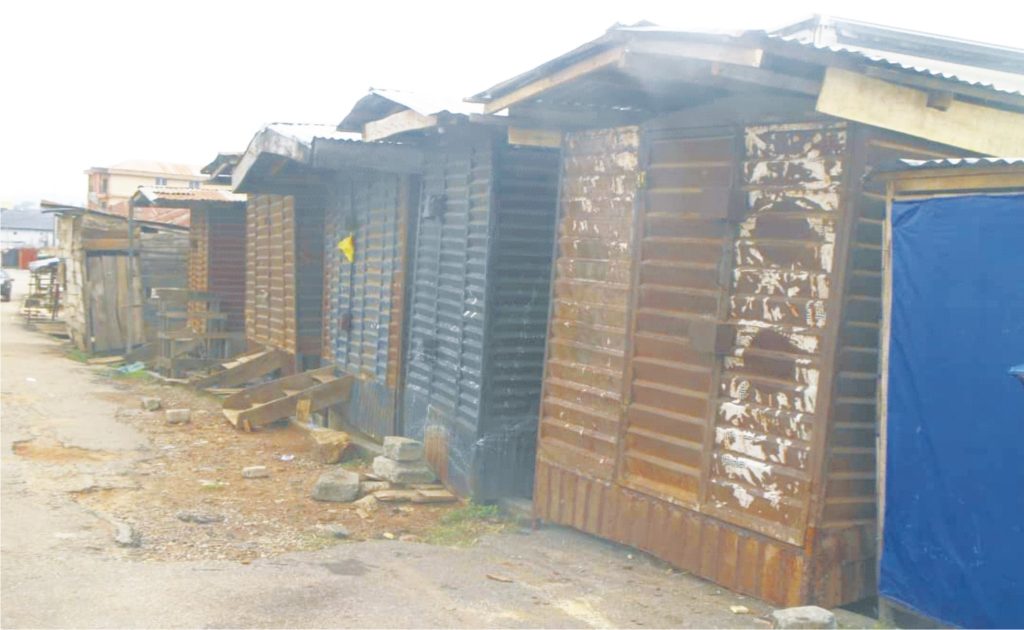Life at Olokuta prisons
By Sunmola Olowookere
Olokuta Medium Prison Facility is located at Olokuta, a sleepy surburb of Akure, the Ondo state capital which probably became popular due to the prison that was cited there.
From the gate, one could observe that it has a militarized look that is more emphazised by the cold, menacing looking and single steel door which leads into the facility.
The facility was built in mid eighties to accommodate 160 inmates. Then after the jail break which was widely reported by the media some years back, the facility was improved upon to accommodate 272 inmates.
However, as at December, 2018, the facility has a total of 848 inmates living in a facility constructed for only 272.
It will amount to an understatement to say that the facility would be overcrowded as the number of inmates currently living there quadruples the planned capacity.
According to the resident doctor in the prison, Dr. Ogunlayi, this factor accounts for the high rate of multiplication of infectious diseases; most especially tuberculosis. “Some of them have lost their lives to this infection because of lack of adequate care.
The inmates would flock to the small windows and peep at visitors coming into the facility as if their visages would give them a glimpse at the outside society.”
Among the 848 inmates, only 172 out of them are actual convicts with 15 serving life sentences, 32 on short term while 122 are on long term sentences.
However, a total number of 662 out of the 848 inmates still have cases to answer. While some of these inmates trials are ongoing, others were just left languishing in the prison as they were victims of missing case files. Without their original case files, the prosecution are usually unable to go to trial.
Out of the 662 inmates awaiting trials, 311 were for armed robbery, 70 for murder, 64 for kidnapping, 11 for rape and 206 for stealing and other crimes
During the last prison visit of the Ondo state Chief Judge, Justice Olutoyin Akeredolu to the Olokuta prison which was one of the measures employed to decongest prisons, the ÇJ was wary of releasing those accused with kidnapping in spite of the high number of inmates awaiting trials at the facility.
She described the current increasing trend of kidnapping people for ransom in the state and other states of the country as worrisome and one which must be quelled in order to forestall total breakdown of law and order.
While considering cases of inmates on remand that would be granted pardon, she exhibited enormous restraint in the consideration of accused persons bordering on kidnapping for pardon as she expressed worry over the recurrent cases of kidnapping in recent times.
During the visit, Justice Olutoyin Akeredolu however granted freedom to 15 inmates of the Olokuta prison, Akure.
Akeredolu granted freedom to 11 inmates unconditionally while she released four inmates on bail pending the determination of their trial.
While some of them were released on health ground as they had acute tuberculosis which could no longer be handled by the prisons’ medical unit, others were released on account of their prolonged stay in the prison without any progress in their trial.
According to the Director of Public Prosecutions in the State Ministry of Justice, Agnes Olowoporoku, most of the cases were stalled at the courts due to loss of their original case file.
The issue of loss of original case file was one legal phenomenon which has not been solved in the state and may also be same experience in other States of the federation.
Speaking on the issue, the Chief Judge could not ascertain what could really be the factor responsible for this, however she admitted that it was the main cause of delay in justice delivery.
The Chief Judge reinstated the state judiciary’s determination to decongest the Olokuta prison.
After granting them freedom and bail respectively, she advised them to change their ways and live a life that is devoid of crime.
While speaking with newsmen after the exercise, she stated that those granted pardon were those that have health challenges or had spent a lengthy period in remand without their case going to trial.
The issue of prison congestion is one that has been generating grave concern over the decades, yet there seemed to be no tangible solution in sight.
In a bid to decongest the prisons, important stakeholders in the state judiciary have begun to make case for non custodial sentencing for accused persons by the courts.
Justice Akeredolu also made case for this in a recent interview she had with The Hope.
According to Wikkipedia, non-custodial sentence also known as community sentence or alternative sentencing is a collective name in criminal justice for all the different ways in which courts can punish a defendant who has been convicted of committing an offence, other than through serving a jail or prison term) or capital punishment (death).
Akeredolu, who expressed the situation of the prisons as giving her some measure of concern disclosed that some of the prison facilities in the state are overcrowded and congested.
She then advocated for non-custodial sentences with the claims that there is room going by the Administration of Criminal Justice law (ACJL), for non custodial sentences.
She however regretted that the style of custodial sentencing was the most common, which was widely supported by the criminal code.
She said that It is necessary for stakeholders in the judicial sector to bring together the two laws so that Judges can pronounce sentences that will help to decongest the prisons.
“I have performed some prison visits, I have been able to release some inmates during those visits. I know it can be better. Now we are putting a few things in place to ensure that the prisons are decongested.” She said.
On rehabilitation, the state has made some efforts in putting the halfway house in shape. This is a building where freed inmates stay for rehabilitation before they joined the society.
Her words “We need to be honest with ourselves, it is not everyone who is remanded at the prisons awaiting trials that is good material for the society.
“But because of one hitch or the other, they have not been tried, the law favours them that they should not be there for an unduely prolonged time. But when they return to the society, many of them go back to crime”.
She expressed the belief that any society that is insecured will be one that will be challenged greatly and any investor coming into a country will first think of security; not only of properties or investments but of lives.
She stated that the judiciary is working hard to ensure that the funds approved by the governor to assist the judiciary to rehabilitate the structure given by the government for the halfway house is released.
“many months back, the governor approved money for the rehabilitation but up till today, it has not been released.
“I also know of Habitation of Hope for the juvenile here in Akure. I have rubbed minds with them and I know that they too need financial assistance.
“They picked street children, take them in, feed, clothe and educate them. They need support so that their work can be more impactful,” she opined.
Life of inmates at the prison should be treated as important because if they are properly rehabilitated, they could still be useful to the society.
Living conditions at the Olokuta prison at best is unfit even for swines. The government of the day needs to address the congestion of the male wing. It is a nightmare that no sane man would experience and still remain the same.

